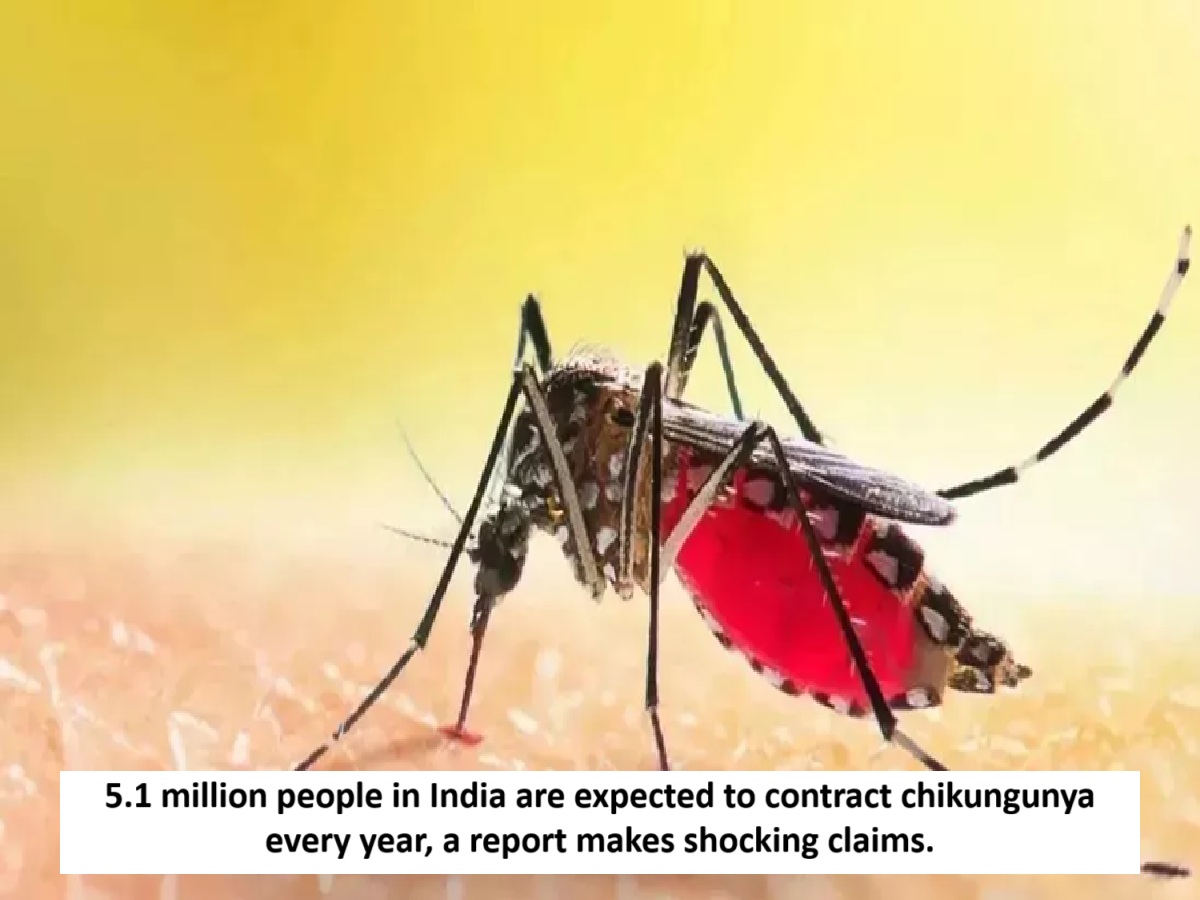
News Topical, Digital Desk : India could face the biggest impact of chikungunya in the long run, with 5.1 million people at risk of contracting the mosquito-borne infection every year, according to a global study published in the British Medical Journal (BMJ) Global Health.
Chikungunya cases rise in Brazil and Indonesia
According to the study, Brazil and Indonesia are expected to be the second and third most affected countries. India and Brazil together account for 48 percent of the global impact on healthcare systems and individuals due to the disease.
Long-term health effects a major concern
The study, led by researchers at the London School of Hygiene & Tropical Medicine, suggests that long-term health effects will be of greatest concern, with current evidence suggesting that around 50 per cent of affected people are likely to suffer long-term disability.
14 million people worldwide are at risk of Chikungunya infection every year
The study estimates that more than 14 million people worldwide could be at risk of long-term chikungunya infection each year. Study co-author Sushant Sahasrabuddhe said the potential spread of vectors carrying viruses like chikungunya will persist even after years of research.
It is therefore extremely important for us to share and use the model we are working on in real time, to help public health professionals manage current challenges and prepare for future ones. Sushant Sahasrabuddhe serves as Associate Director General for Innovation, Initiatives and Enterprise Development at the International Vaccine Institute in South Korea.
What is Chikungunya
Chikungunya is a virus spread by the bite of Aedes aegypti and Aedes albopictus mosquitoes, commonly known as the yellow fever and tiger mosquitoes. Symptoms can include high fever and severe joint pain, and about 50 percent of patients suffer long-term joint pain and disability.
--Advertisement--

 Share
Share



